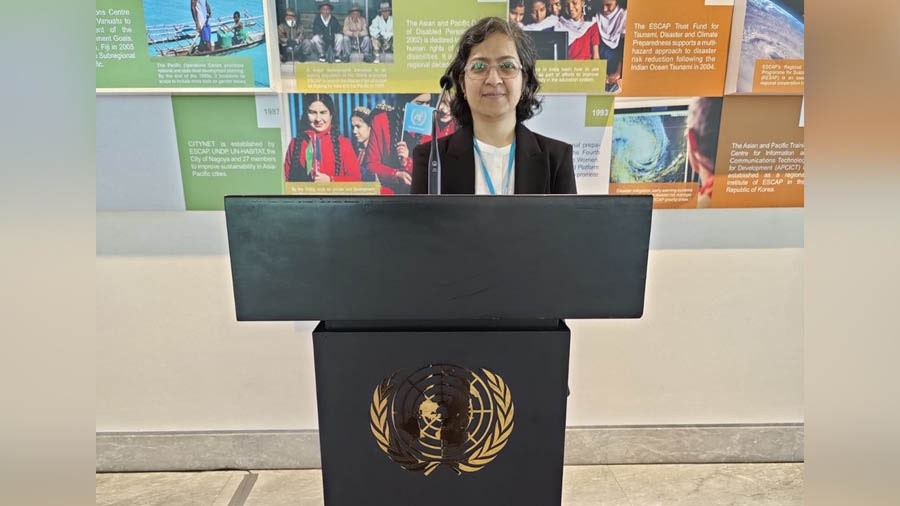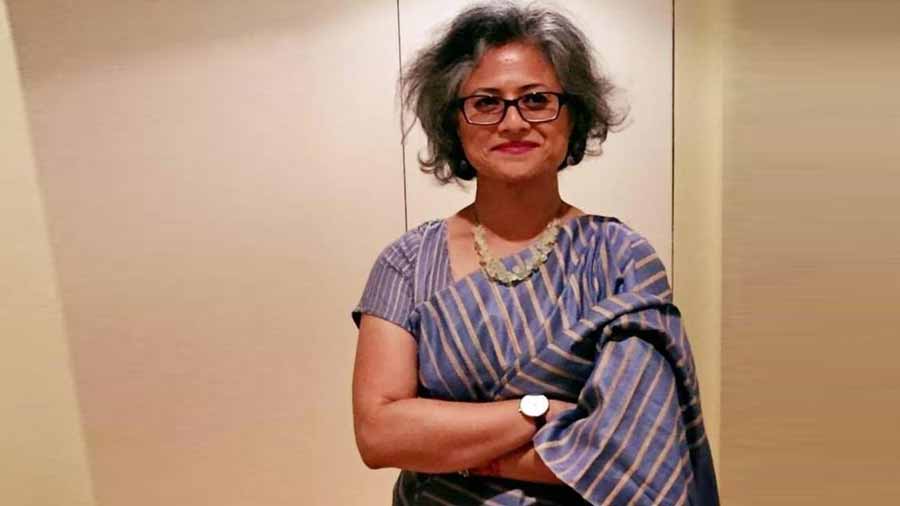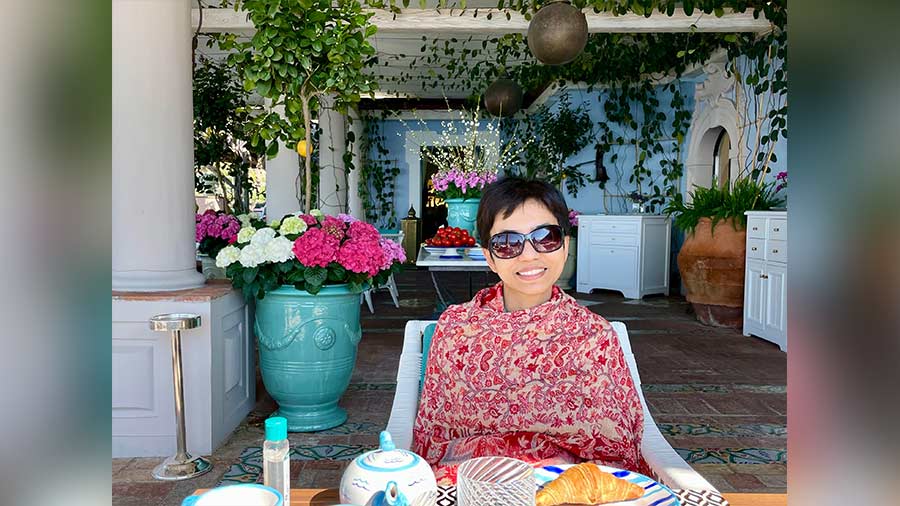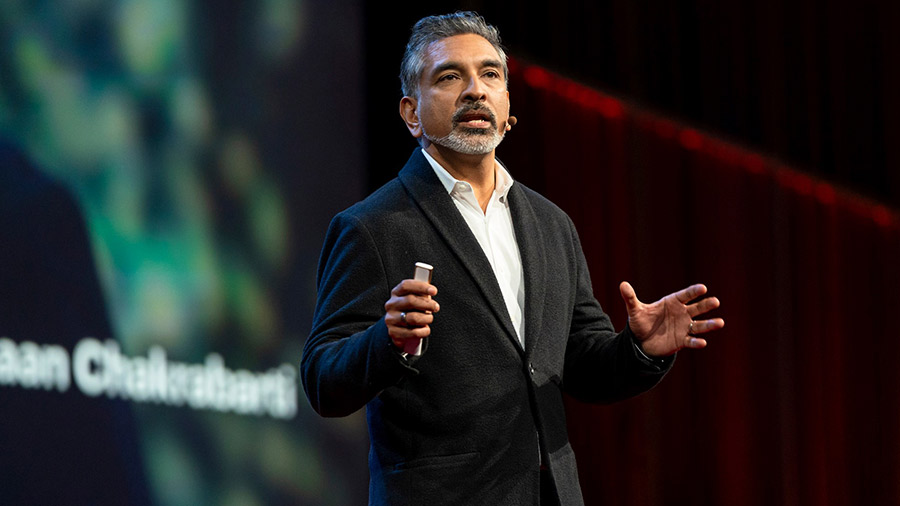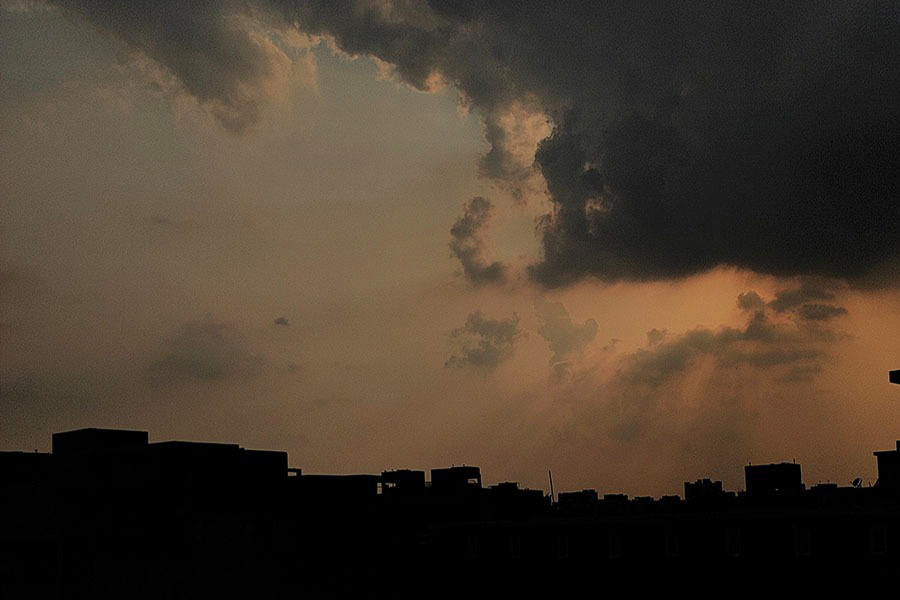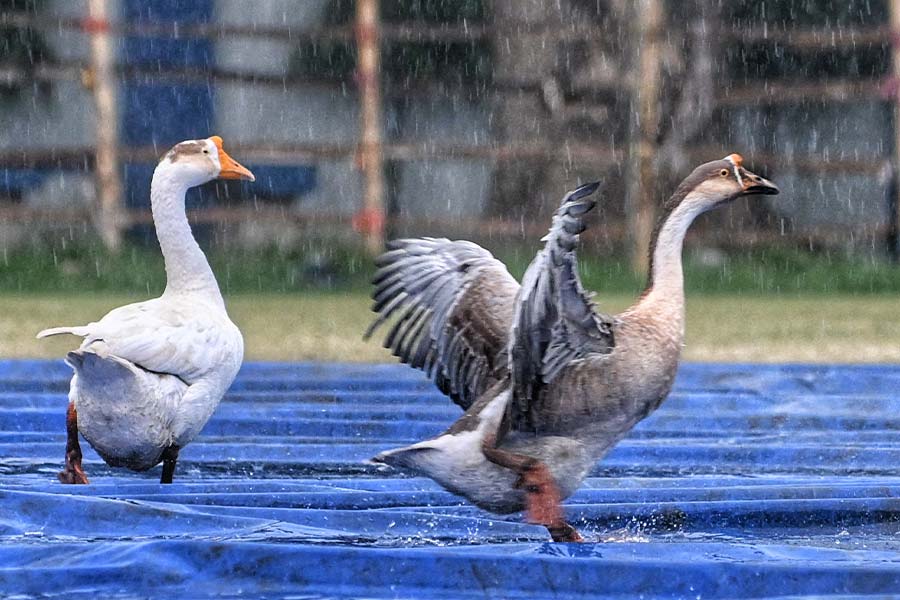More than half of the world’s present population comes from the Asia-Pacific region, which is estimated to be home to five billion people by 2050. In other words, no story of global progress can be imagined without the story of Asia-Pacific. Among the actors shaping this story at an institutional level is Rupa Chanda, the director of the Trade, Investment and Innovation division at the United Nations Economic and Social Commission for Asia and the Pacific (ESCAP).
My Kolkata caught up with Rupa, 55, via a video call connecting Kolkata and Bangkok (where ESCAP is headquartered) to discuss her role, her formative years, the economic challenges for India and Asia, globalisation versus regionalism and more. Edited excerpts from the conversation follow.
My Kolkata: Where were you born and brought up? Tell us about your best memories from your formative years.
Rupa Chanda: I was born and brought up in Delhi for the first 10 years of my life. My dad was then posted to Afghanistan and we moved to Kabul for a couple of years. We came back to Delhi for a while, before shifting to New York in the early ’80s. I enjoyed my time in Delhi’s East Patel Nagar, which had a strong Bengali community. Kabul was a transformative experience, with a great social life, a rich variety of people to meet and a very active embassy. The schooling was great, too. Nowadays when I see what’s happening in Afghanistan, I feel even more strongly after all the memories we made there. New York had its own flavour. My entire teenage and early 20s were spent there, where I made friends from all over the world. To this day, I call New York my second home.
‘Bangkok has been the easiest city to transition into’
When did you move to Bangkok? How has the transition been?
I moved to Bangkok in March 2022 (to take up her current role). It’s been difficult because I’m alone. My husband (Pradip Dutta) and son are in Bengaluru, while my mother is in Delhi. But Bangkok has also been the easiest city to transition into, even easier than in the US. It’s very expat-friendly with a thriving Thai-Indian community. Life has been much less stressful here than back in India.
How often do you come back to India these days? Do you get to visit Kolkata much?
Until last year, I was going back every month to India. The travelling is easy, which helps. This year, I’m going even more because of the G20 (whose annual summit is being held in Delhi).
I last came to Kolkata in January 2018. My in-laws are from Kolkata, but, unfortunately, work never takes me there. I’m still looking for an opportunity to return to Kolkata.
‘Harvard was amazing… Columbia was more of a mixed experience’
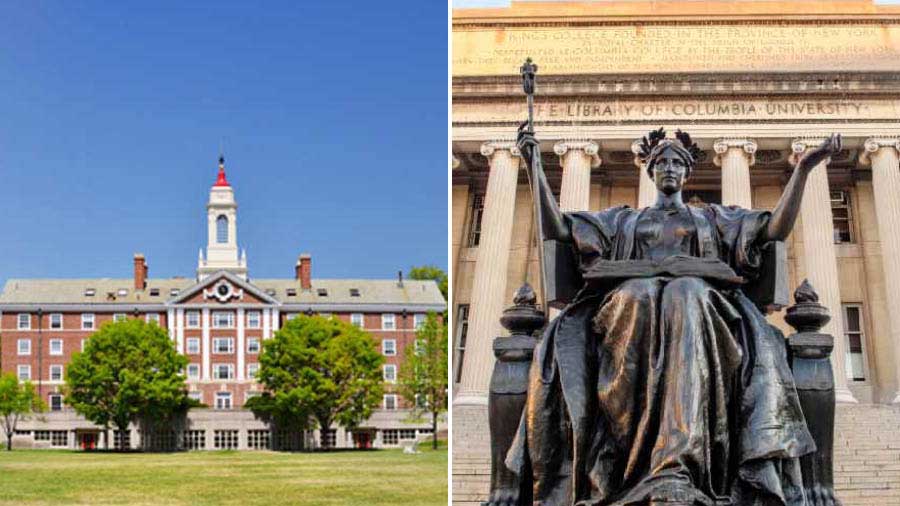
Rupa spent several years of her academic life at Harvard University followed by Columbia University
TT ArchivesWhat were the highlights of your experience at Harvard University, where you completed your BA, and thereafter at Columbia, where you pursued your MA, MPhil and PhD?
Harvard was an amazing experience. I majored in economics, but dabbled in a variety of courses. There were people from all kinds of backgrounds. Not all of them were the best academically, but every person was interesting in their own ways. I remember meeting Vietnamese boat refugees at Harvard. Their English wasn’t great, but they were excellent at maths and science. Then there was the depth in terms of the faculty, the resources, and the museums. I’d spend a lot of my time in the library exploring classic Sanskrit texts or learning about precious stones at the Harvard Mineralogical and Geological Museum. Plus, the whole area of Cambridge (in Massachusetts) has an aura of its own, stacked with bookstores and antique shops.
Columbia was more of a mixed experience. The courses I enjoyed the most were outside my specialisation of economics. Because I felt that economics at Columbia was too mathematical. I didn’t get to see much of the human being or society behind it. But there were plenty of great lecturers at Columbia, which has the advantage of getting the best from the finance and legal community in New York.
How did you make the transition from a scholar at Columbia to a professor at IIM Bangalore?
After my PhD, I wasn’t interested in teaching. I wanted to go into policy and make an impact by working with governments. I interned with the World Bank and the IMF, and eventually got hired by the IMF to work in their trade policy division. But my career got shaped by personal circumstances. My husband had also done his PhD from Columbia, and he wanted to teach. For four years, we were constantly in different places in the US. Finally, he got an offer from IISC Bangalore and I got a position at IIM Bangalore. I was ambivalent about India, but it was a compromise of a solution at the time. After a few years of being a visiting faculty at IIMB, I quit my job at IMF and became a full-time professor.
‘MBA courses have become more transactional because people want a return on their increased investment’
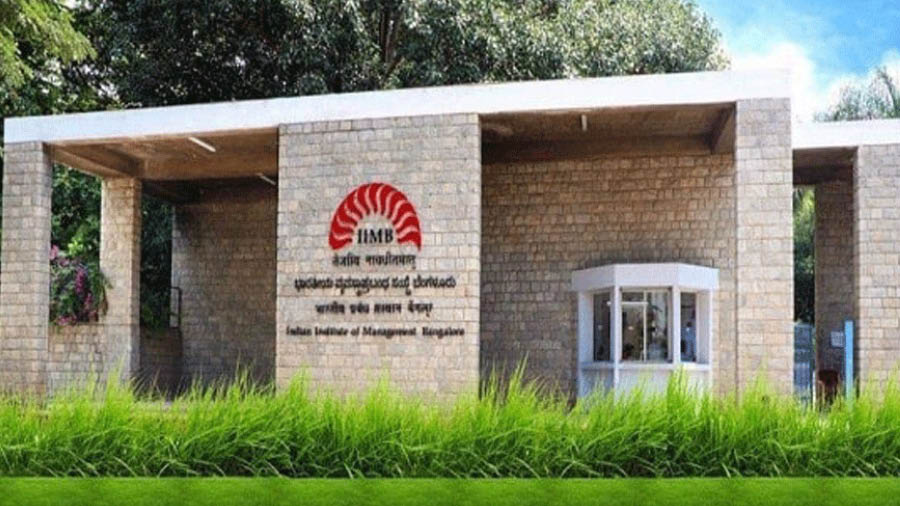
Rupa has spent 24 years as a full-time professor at IIM Bangalore
TT ArchivesYou have taught economics at IIMB since 1997. How has your approach to teaching economics at one of the best institutions in India changed over time? And are you still teaching?
I’m currently on something called an extraordinary leave, but it runs out in September. This means that I’ll have to decide soon if I want to go back to IIMB or stay at the UN. After 24 years as a full-time professor, I want to do something different.
However, my time teaching at IIMB has been very rewarding. I’ve developed very good relations with students through projects and the classroom. MBA education was much less costly when I started. The initial years were better in terms of student aptitude and class engagement. With time, the attitude to an MBA has changed. MBA courses have become more transactional because people want a return on their increased investment. As a professor, I’ve had to evolve and become more contextualised, more case-study oriented in my approach. I’ve always tried to link contexts and models to real-world data and examples. While at IIMB, I’ve also been heavily engaged in other projects, including as a visiting faculty at the Indian Council for Research on International Economic Relations (ICRIER) in Delhi.
‘Focus on research, technical capacity building, outreach and participation’
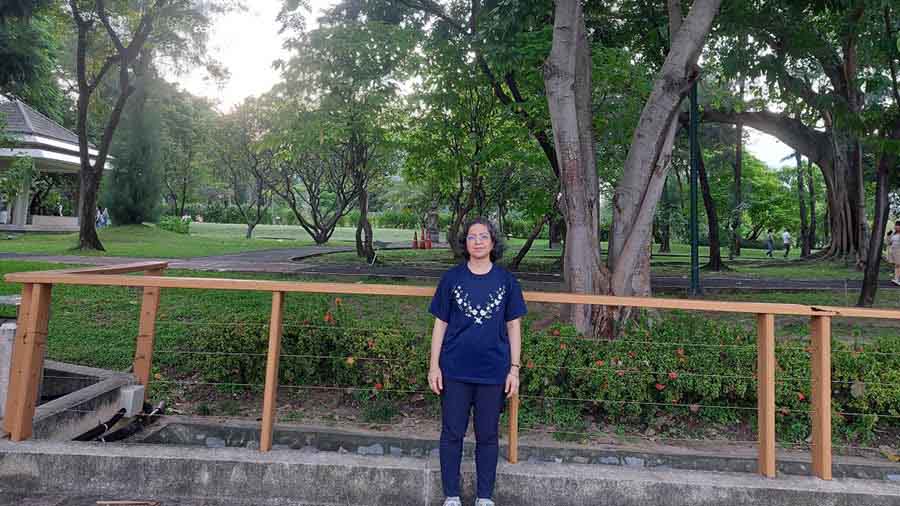
Digitisation, gender issues, climate and sustainability are some of the common themes around which Rupa’s work at the UN revolves
Rupa ChandaWhat does your current role as a director at ESCAP entail?
My division of Trade, Investment and Innovation is the biggest and one of the most important at ESCAP, with a very wide mandate. We work with governments such as those from China, South Korea and Russia as well as with companies such as Google. There’s a lot of focus on research and analytical work, technical capacity building, as well as on outreach and participation in various events for greater visibility and awareness. The common themes across the verticals I work on are mostly about digitisation, gender issues, climate, sustainability and MSMEs.
What would you identify as the biggest concerns in the Asia and Pacific region right now, particularly in light of the pandemic and the Russia-Ukraine war?
First, climate change is a massive concern, not least because the region in the ESCAP belt is the most vulnerable to climate disasters. Second, in light of Covid and the war, we need to redefine interdependence among nations in a way that maintains collective openness but also increases individual countries’ resilience to shocks. This balancing act can prove difficult due to the dominance of certain countries in the region. Third is the digital economy, complete with its opportunities and challenges. Digital inclusion is a great learning from countries like India, but the issues of regulatory fragmentation (how the law can keep up with technology in different domains) and the digital divide remain. Finally, it’s jobs and employment. What kind of jobs will people have going forward? How do they need to be upskilled and reskilled?
‘Simply having a demographic dividend isn’t enough for India’
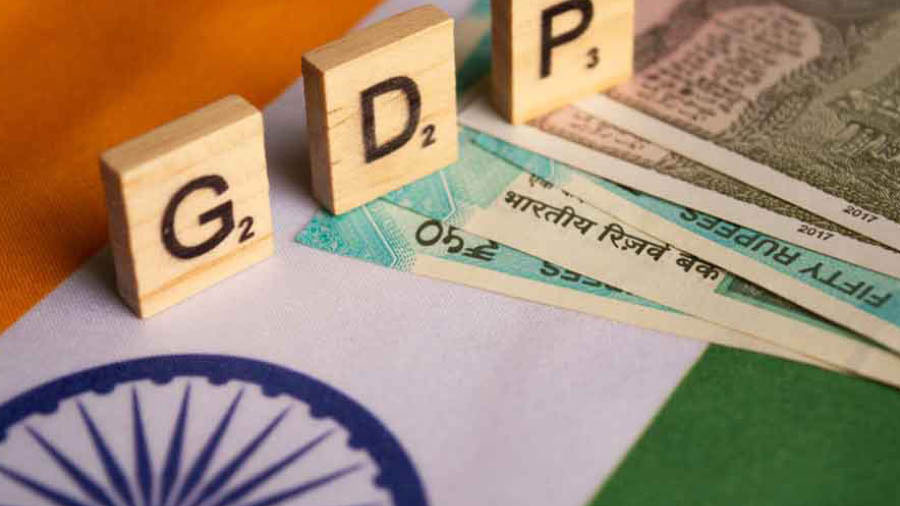
India needs a much more broad-based development of the service sector, believes Rupa
TT ArchivesHow do you view India’s economic health going forward? India seems to be an exception in that it is making a leap from an agriculture-centric economy to a services-centric economy without going through the conventional transition of manufacturing. Is that a good or bad thing?
I’m tempered about India. Our scale, population and technology make us important, but I’m not someone to be swept up in rosy predictions. I’m concerned about manufacturing in India. No country has leapfrogged from agriculture to services successfully. Is ours a new paradigm? I don’t think so. Services have to generate demand from somewhere, and right now, a lot of that demand is externally generated. The service industry also employs a small section of the domestic population. This means that for services to grow, manufacturing has to grow, too, along with growing consumer pools. There has to be a much more broad-based development of services, diversifying into sectors like tourism and retail, which are linked more closely to manufacturing. Otherwise, a large-scale, low-cost China model of development might not give us enough jobs.
Right now, India’s focus on infrastructure is good news. But we need to invest more in human capital. Simply having a demographic dividend isn’t enough. In a few years, we’ll also have a bulging of the aged in our population. That brings with it things like social care and urban development, which we haven’t started looking into yet.
How do you look at India’s multi-alignment policy with respect to the current world order and the tussle between the US and China?
Multi-alignment is going to work for now because of the interest of all the parties concerned. This means that India can afford to sit on the fence on certain issues. But there are other areas where we need to engage more. Going into bilateral and regional arrangements is fine but India’s larger standing isn’t clear on a number of fronts. On trade, we don’t engage enough on e-commerce and digital issues in the WTO. We have the weight, since India’s market matters. The way I see it is that technology and money will define global leadership. To boost both, we need other countries, but they also need us. More reason to not shy away and play our role in shaping the dialogue.
‘No matter what the rhetoric is between India and China, we can’t do without one another’
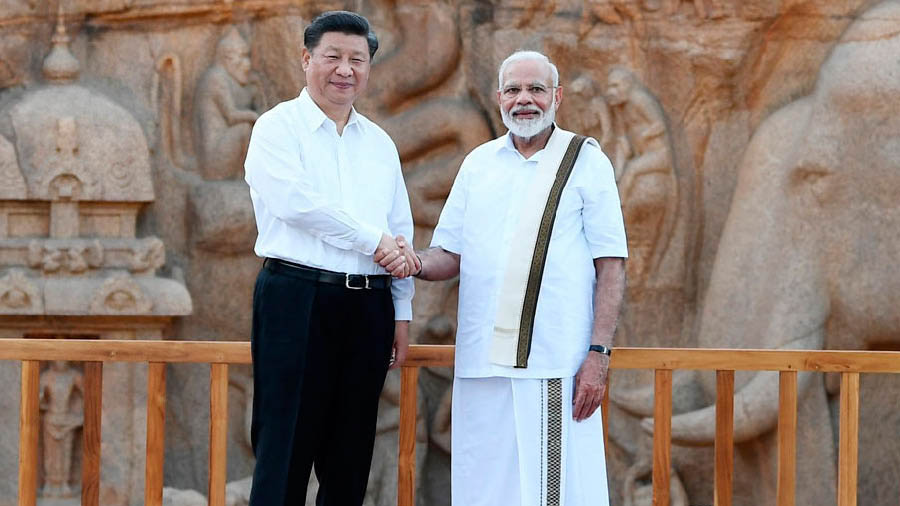
Regionalism and sub-regionalism have paved the way for a fragmented globalisation, argues Rupa
TT ArchivesIs peak globalisation over? Have we entered a new phase of international relations?
There was a period of hyper-globalisation in the early 2000s and there’s been a deceleration since the financial crisis of 2007-08. But, overall, everyone accepts that globalisation will stay. Having said that, countries are also thinking about diversifying. What we’re seeing now is more of regionalism and sub-regionalism, which is more of a fragmented globalisation. At the same time, a lot of anti-globalisation sentiment is just rhetoric. For example, India and China. No matter what the rhetoric is, we can’t do without one another.
Stepping away from all things economic and political, tell us about your hobbies and interests. How do you zone out?
Singing is my main hobby. I see myself as an eternal student of music, and I’ve had the same teacher (in Bengaluru) for several years now. I also enjoy reading and re-reading novels.
My Kolkata spoke to your elder sister, Shampa Chanda, last year. Tell us about the bond the two of you share.
We have a very strong bond, but it’s also hot and cold. She is very strong-willed, the kind of person who pushes ahead and doesn’t look back. I think five times about most things, sound people out and seek affirmation. She hates that, and we get into fights about it! I share more, but she advises more. She has always been a well-meaning sister, but she loves bossing over me! Increasingly, though, we don’t get to interact as much. We have different lives, time zones and networks. So, keeping in touch on a regular basis isn’t easy.
‘Your research should be about relevance, not about getting a pat on the back from a publication’
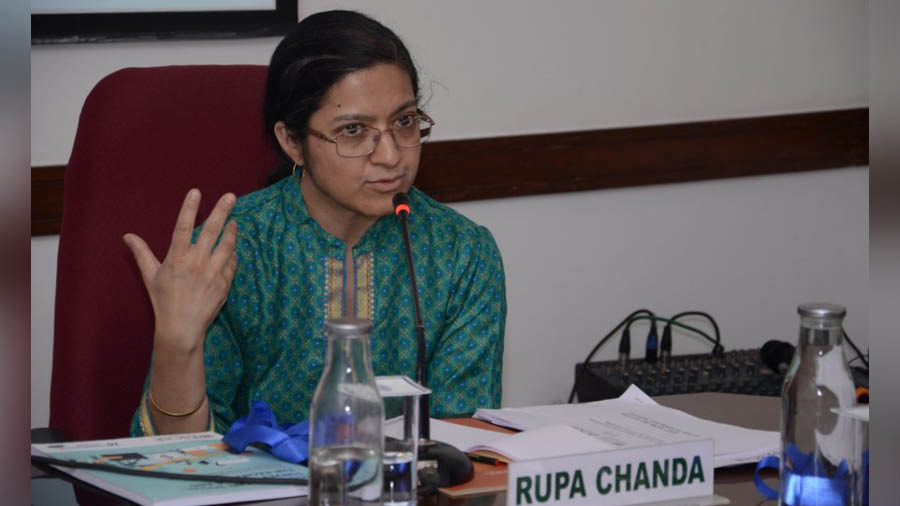
Research should be about relevance and policy should involve conviction, feels Rupa
Twitter/UNinIndiaYour advice for youngsters wanting to get into academia and/or policy.
For academia, always be open to learning and updating yourself. There will be lots of learning on the job and from students. Also, don’t do research for its own sake. Your research should be about relevance, not about getting a pat on the back from a publication. Research across disciplines and develop a strong peer community.
For policy, you have to come with the conviction that you can make an impact. Try not to compromise on what you’re doing. Hold onto your position and what you believe in because there will be constraints.
What are your goals or targets in the time to come? Where do you see yourself in four to five years’ time?
I’m really enjoying my work at ESCAP, I love the division. I have another 10 years to go until my retirement. Over the next few years, I want to push to get more done on female entrepreneurship, digital financial inclusion and integrating countries that are graduating from the bracket of the Least Developed Countries (LDCs). In terms of the larger picture, I’ve been at both ends of the academia-policy framework. I want to do something that brings both the communities together.


